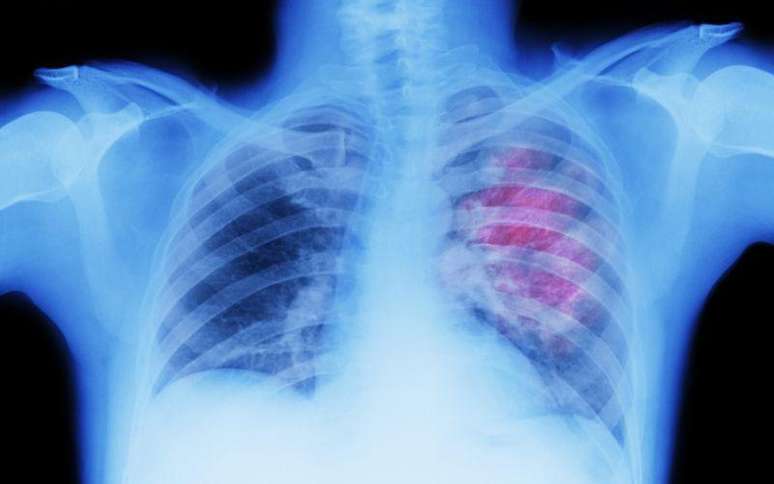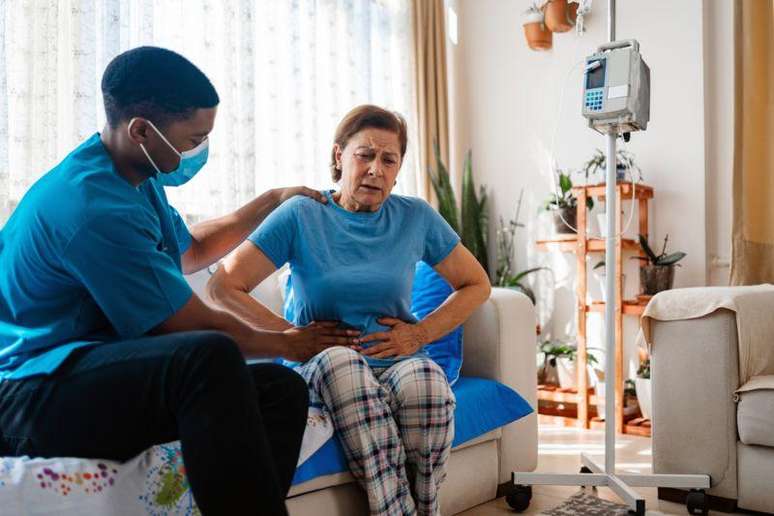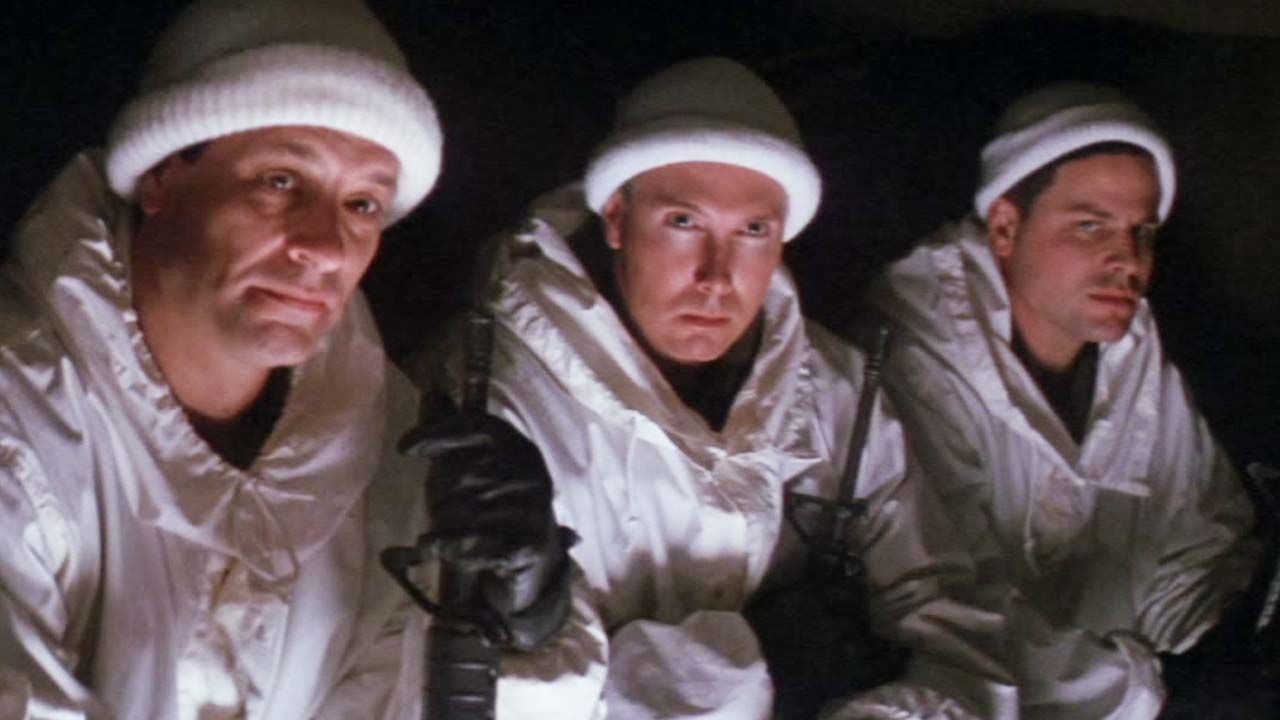The BBC has compiled a list of 10 general cancer symptoms that the American Cancer Society says you shouldn’t ignore. If you have any, going to the doctor is the best thing to do.
html[data-range=”xlarge”] figure image img.img-fff3236423f3ddb8d815ab76c77057ba6cz1q8m8 { width: 774px; height: 436px; }HTML[data-range=”large”] figure image img.img-fff3236423f3ddb8d815ab76c77057ba6cz1q8m8 { width: 548px; height: 308px; }HTML[data-range=”small”] figure image img.img-fff3236423f3ddb8d815ab76c77057ba6cz1q8m8, html[data-range=”medium”] figure image img.img-fff3236423f3ddb8d815ab76c77057ba6cz1q8m8 { width: 564px; height: 317px; }HTML[data-range=”small”] .article__image-embed, html[data-range=”medium”] .article__image-embed {width: 564px; margin: 0 automatic 30px; }
Most people, when they hear the word cancer, associate the term with a dangerous disease with a fatal outcome.
But since the 1970s the survival rate has tripled, largely thanks to early diagnosis.
In reality, most cancers are treatable with a favorable outcome for the patient when they are diagnosed before reaching an advanced stage.
The problem is that, often, because we don’t want to go to the doctor or don’t give it the right importance, we ignore some symptoms that can be crucial for an early diagnosis.
According to a study conducted by the organization Cancer Research UK, more than half of British citizens experienced some of the symptoms that could indicate the presence of cancer, but only 2% thought they had the disease and more than a third completely ignored the warnings and he didn’t go to the doctor.
Katriina Whitaker, a researcher at University College London and lead author of the research, spoke to the BBC about the importance of going to the doctor.
“There are those who think we shouldn’t encourage people to be hypochondriacs, but we have a problem with people who don’t go to the doctor because they believe they’re wasting time and using the resources of the healthcare system unnecessarily.”
“We need to spread the message that if you have symptoms that don’t go away, especially those that are considered warning signs, you shouldn’t ignore them, you should go to the doctor and seek help,” he says.
BBC News Mundo, the BBC’s Spanish-language service, has compiled a list of 10 general cancer symptoms that the American Cancer Society says you shouldn’t ignore.

1. Unexplained weight loss
Most people with cancer experience weight loss at some point.
When you lose weight for no apparent reason, it is called unexplained weight loss.
A loss of 5kg or more may be the first sign of cancer.
This occurs more frequently with cancer of the pancreas, stomach, esophagus, and lung.
2. Fever
Fever is very common in cancer patients, although it occurs more often after the cancer has spread from the site of origin.
Fever will affect almost all cancer patients, especially if the disease or its treatments affect the immune system.
Less commonly, fever can be an early sign of cancer, such as leukemia or lymphoma.
3. Fatigue
Fatigue is extreme exhaustion that does not improve with rest. It can be an important symptom as the cancer progresses.
However, in some types of cancer, such as leukemia, fatigue may occur initially.
Some types of colon or stomach cancer can cause abnormal bleeding.
This is another way cancer can cause fatigue.

4. Skin changes
Along with skin cancers, some other types of cancer can cause visible changes to the skin.
These signs and symptoms include: darkening of the skin (hyperpigmentation), yellowing of the skin and eyes (jaundice), redness (erythema), itching (pruritus), and excessive hair growth.
5. Changes in urination or bladder function
Constipation, diarrhea, or a change in stool size over a long period of time may be a sign of colon cancer.
On the other hand, painful urination, blood in the urine, or changes in bladder function (such as urinating more or less frequently) may be related to bladder or prostate cancer.
6. Wounds that don’t heal
Many people know that spots that grow, hurt, or bleed can be symptoms of skin cancer, but we should also be aware of small wounds that don’t heal for more than four weeks.
A mouth sore that doesn’t heal could be caused by oral cancer.
Any changes in the mouth that last a long time should be examined by a doctor or dentist immediately.
Sores on the penis or vagina may be signs of infection or early cancer and should be examined by a healthcare provider.

7. Bleeding
Unusual bleeding can occur with early or advanced stage cancer.
Coughing up blood can be a sign of lung cancer.
On the other hand, if blood appears in your stool (which may be very dark in color), it could be a sign of colon or rectal cancer.
Cervical cancer of the endometrium (lining of the uterus) can cause abnormal vaginal bleeding.
Also, blood in the urine can be a sign of bladder or kidney cancer.
Nipple bleeding can be a sign of breast cancer.
8. Stiffness or lumps in any part of the body
Many types of cancer can be felt on the skin.
These tumors occur mainly in the breasts, testicles, lymph nodes (glands), and soft tissues of the body.
A lump or stiffness can be an early or late sign of cancer.
9. Difficulty swallowing
Persistent indigestion or difficulty swallowing may be signs of cancer of the esophagus (the swallowing tube that leads to the stomach), stomach, or pharynx (throat).
However, like most of the symptoms on this list, they are often caused by causes other than cancer.
10. Persistent cough or hoarseness
A persistent cough can be a sign of lung cancer.
It is recommended to consult a doctor after the third week of coughing.
Hoarseness may be a sign of laryngeal or thyroid cancer.
Source: Terra
Ben Stock is a lifestyle journalist and author at Gossipify. He writes about topics such as health, wellness, travel, food and home decor. He provides practical advice and inspiration to improve well-being, keeps readers up to date with latest lifestyle news and trends, known for his engaging writing style, in-depth analysis and unique perspectives.








